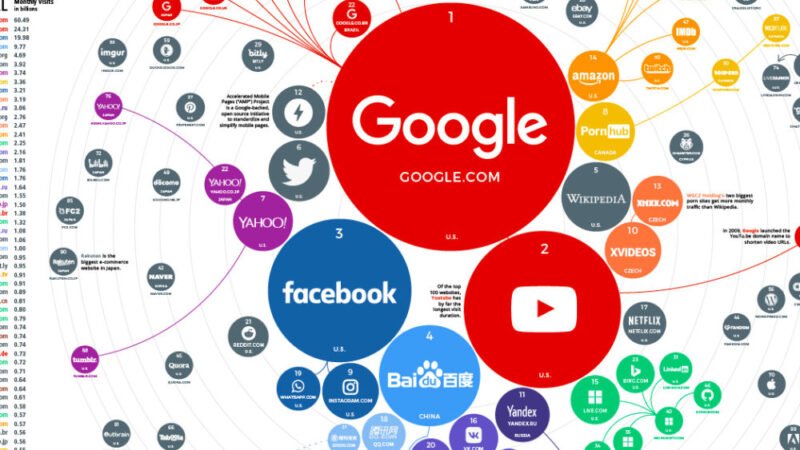Tips for building a good organizational culture

Table of Contents
- Importance of organizational culture
- How to consolidate a good organizational culture
- Transparency above all
- Recognize and reward valuable contributions
- Foster strong relationships
- Stimulate autonomy
- Contribute to flexibility
- Convey purpose and passion
- Promote team spirit
- Provide constant feedback
- Respect the mission, vision and general values
- Dedicate the effort and time it deserves to the organizational culture
Download the DataScope app and get started now!
The “personality” of a company is essential to achieve success and overall goals. Therefore, it is necessary that both leaders and teams contribute their daily efforts to consolidate a good organizational culture and a common spirit known by all, where cooperation, interaction, work, values and recognition of the effort made are emphasized.
In the current scenario of technological and cultural transformation, much of the success of companies depends on their organizational culture. That is, the “personality” of the company. Characteristic that, as in all people, must always be in constant evolution and growth.
Although it is a logical and well-known strategy, its application is not easy, since it requires both the company and its collaborators to be aligned with the general strategic objectives. At the same time, it is necessary to optimize and reinforce key skills such as leadership, empathy and effective communication, which are key to building and consolidating a positive work environment.
Importance of organizational culture
Technically, this concept defines the rules and principles from which every company or organization is governed. In other words, it encompasses all the most important aspects of your “personality” such as professional ethics, job performance, team beliefs, and even how the internal environment should be structured.
Its importance lies in the fact that it represents the vital core of the company. Without it, it would lack the fundamental foundations to carry out a solid and successful operation. Therefore, all organizations that are concerned with optimizing their organizational culture achieve better market positioning. This translates, in turn, into more competitiveness and commercial success.
Similarly, companies that promote a good organizational culture not only promote actions to improve the internal climate, but also project a positive corporate image towards their target audience, which positions them better compared to their competition.
This allows the organizational culture to be a key pillar for growth, and at the same time, to attract and retain the best available talent.
How to consolidate a good organizational culture
Although most of the strategies aimed at improving the organizational climate are structured on the basis of the relationships between the different members of the team, this is not the only aspect to consider. Equally important elements must also be considered, such as the hierarchical structure, the characteristics of internal leadership and effective communication skills, among other factors that define the company’s culture.
Although the different composition of organizations prevents there from being unique and immovable solutions, experts in people management highlight ten simple and practical steps that every company or team leader can apply, both in the short and long term.
Transparency above all
This quality is not only positive for employees, but for the entire organization as a whole. A transparent business culture has an impact on the entire organization and, in addition, generates employees who are highly committed to the general objectives.
The basis of this transparency is trust. Therefore, if you want to have an open and transparent culture, you must ensure that the team has modern communication and collaboration tools.
This implies modernizing the equipment available for this purpose, especially if the collaborators perform their duties in teleworking or hybrid mode. In such circumstances, today the majority in the labor market, it is imperative to have efficient and easy-to-operate communication channels that allow constant connection and facilitate the transfer of information.
Recognize and reward valuable contributions
Recent studies published in the USA and Europe show that companies that emphasize recognition of their people have lower turnover rates. In fact, employees who feel unrecognized are twice as likely to quit in a year, while at companies with a better “recognition culture,” the rate is 31% lower.
To apply this improvement in the organizational culture, those behaviors and results that are aligned with the objectives and values of the company must be identified, in order to recognize and reward them as often as possible.
Of course, if you aspire to consolidate an even more significant change, you must ensure that this recognition is generalized within the team itself. Furthermore, a culture must be promoted where teams collectively recognize the contribution of other teams, which will help to consolidate the spirit of camaraderie.
Foster strong relationships
The existence of strong bonds between co-workers will further boost their commitment to the organization and the overall goals. However, this does not happen spontaneously. It is necessary for companies and their leadership to promote instances of greater closeness and exchange, such as, for example, through “gamification” strategies, or by promoting instances of social encounters, both inside and outside the company.
Stimulate autonomy
The success of job performance is not based on constant and exhausting supervision. It is necessary to stimulate the autonomy and proactivity of the collaborators, trusting in their skills and abilities to carry out the assignments that are given to them.
This will stimulate their confidence and autonomy, in such a way that each worker will feel empowered, not only to meet their goals and deadlines, but also to propose new forms of action and even to anticipate scenarios, crises and contingencies.
Contribute to flexibility
Most successful companies have already understood that they cannot remain anchored to the paradigms of the past. Today’s collaborators value flexibility and a large part of the new talents “demand” working hours that do not imply, for example, always sitting behind a desk away from their families.
This helps to consolidate organizational loyalty and also significantly reduces staff turnover.
Convey purpose and passion
The most recent research confirms the importance of having a “job with meaning and purpose”. In fact, a large part of young professionals and managers value these characteristics more than salary and physical compensation.
But it is not a complex mission. It simply implies that the worker is certain that his work contributes to making the world a better place. Therefore, it is the leaders who must consolidate that vision, through careful permanent coaching.
According to experts in talent management, if employees consider that their work has social, moral or ethical significance, their performance, motivation, satisfaction and learning capacity increase.
Promote team spirit
Teams are not simple groups of people to be led or directed. They are members of a vital whole and, like the different parts of the human body, each of them is important to the extent that it interacts consciously and proactively with others.
This change in mentality implies directing a unified team towards specific objectives, and making sure that everyone is moving in the same direction. Therein lies the key to professional and organizational success.
Provide constant feedback
This feature goes far beyond giving instructions and making sure they are understood by everyone. It involves providing employees with the tools they need to improve and grow together with the company.
It also requires having the ability to listen to opinions or suggestions, as well as effectively incorporating those that are valuable for the successful achievement of common objectives. Regardless of whether they are ideas transmitted by managers, bosses or subordinates.
To achieve this change, periodic participation surveys can be sent, team meetings can be held, or direct communication channels between leaders and workers can be established, among other options.
Respect the mission, vision and general values
This involves much more than printing flyers or designing template sections on institutional web pages. It represents the need for the objectives of an organization, as well as the procedures designed to achieve them, to be known, valued and applied by each of the members.
This requires developing genuine core values and staying true to them, as well as encouraging the team to follow them and, above all, understand and incorporate them into their daily work.
Dedicate the effort and time it deserves to the organizational culture
Building a valuable organizational culture takes time and energy. It is not something that is achieved overnight, but rises and solidifies as the mission and values of the company are consolidated within the entire organization.
Therefore, if the necessary time and effort are not allocated to build a valuable organizational culture, the result will be just a kind of “job to be done” that will not bring benefits to anyone. Neither the management nor the workers.
A truly strong culture must also be something that is alive and always in progress, that has the ability to adapt to changes in scenery and, at the same time, grow together with those who adopt it in their daily behavior.
Download the DataScope app and get started now!
DataScope is the ideal tool to eliminate paper use, save time and efficiently collect data from the field. It allows companies to speed up, organize and evaluate field work thanks to its online forms, which provide indicators in real time, 100% adaptable to any area. With DataScope, your team can respond to personalized mobile forms from their phones or tablets, online or offline, through the app.






